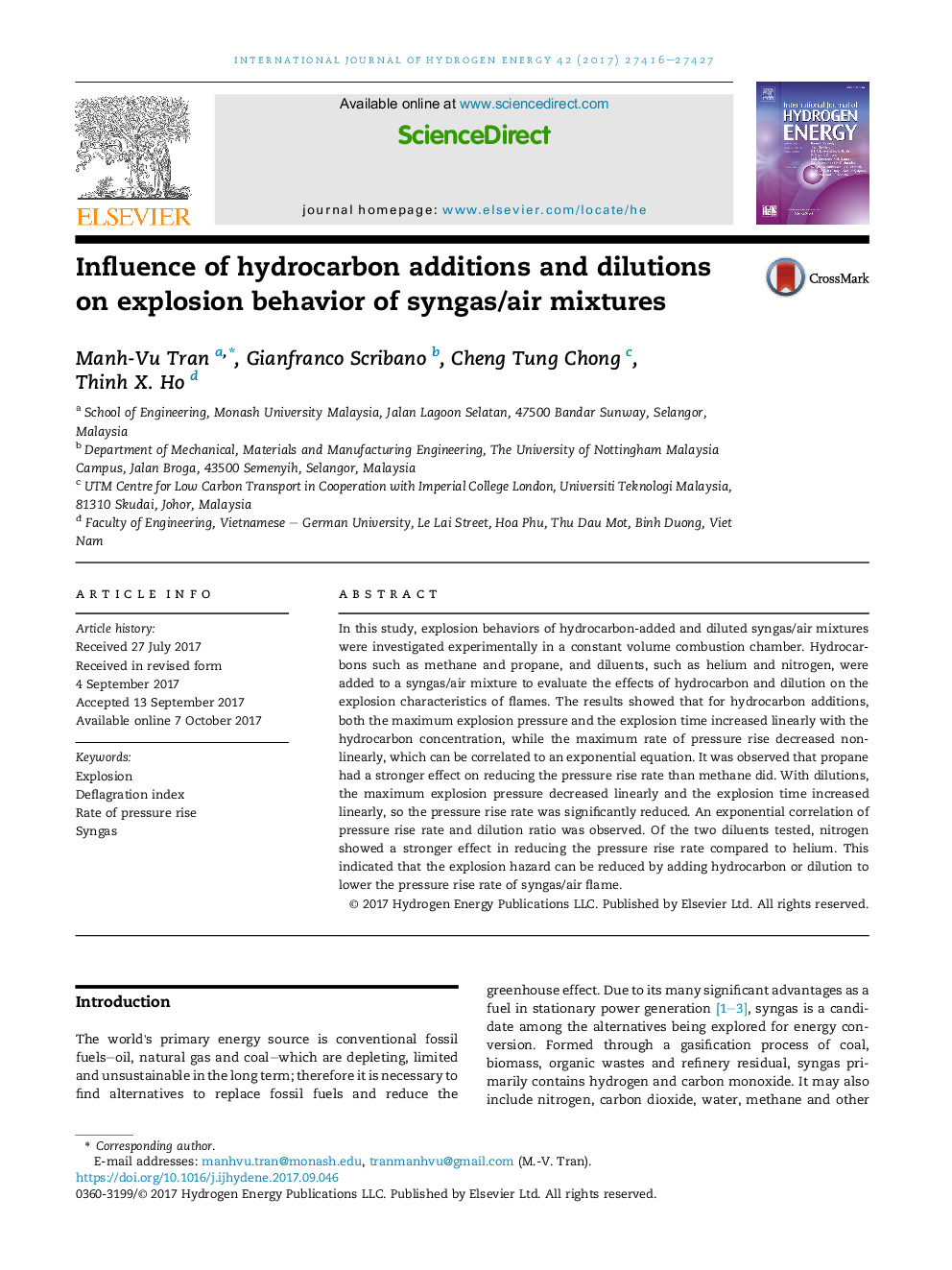| Article ID | Journal | Published Year | Pages | File Type |
|---|---|---|---|---|
| 7709760 | International Journal of Hydrogen Energy | 2017 | 12 Pages |
Abstract
In this study, explosion behaviors of hydrocarbon-added and diluted syngas/air mixtures were investigated experimentally in a constant volume combustion chamber. Hydrocarbons such as methane and propane, and diluents, such as helium and nitrogen, were added to a syngas/air mixture to evaluate the effects of hydrocarbon and dilution on the explosion characteristics of flames. The results showed that for hydrocarbon additions, both the maximum explosion pressure and the explosion time increased linearly with the hydrocarbon concentration, while the maximum rate of pressure rise decreased nonlinearly, which can be correlated to an exponential equation. It was observed that propane had a stronger effect on reducing the pressure rise rate than methane did. With dilutions, the maximum explosion pressure decreased linearly and the explosion time increased linearly, so the pressure rise rate was significantly reduced. An exponential correlation of pressure rise rate and dilution ratio was observed. Of the two diluents tested, nitrogen showed a stronger effect in reducing the pressure rise rate compared to helium. This indicated that the explosion hazard can be reduced by adding hydrocarbon or dilution to lower the pressure rise rate of syngas/air flame.
Related Topics
Physical Sciences and Engineering
Chemistry
Electrochemistry
Authors
Manh-Vu Tran, Gianfranco Scribano, Cheng Tung Chong, Thinh X. Ho,
